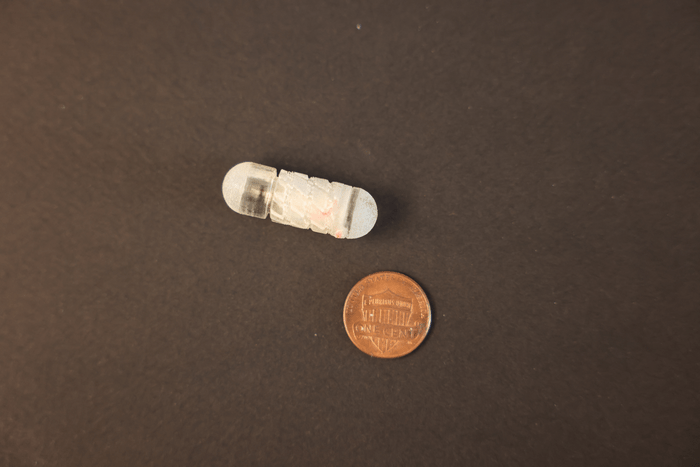Oral drug delivery is the most common and cost-effective way to deliver a treatment. But drugs must make it through the harsh, acidic environment of the stomach, resist degradation by enzymes, penetrate the barrier posed by the mucus of the small intestine and overcome many other obstacles before they can be absorbed. Because of these challenges, many drugs—including common drugs like insulin—must be delivered through other means. Investigators from Brigham and Women’s Hospital–a founding member of the Mass General Brigham healthcare system–and MIT have developed RoboCap, an orally ingestible robotic drug delivery device that overcomes many of the challenges of the gastrointestinal environment to deliver its payload. The team tested the device in preclinical models using insulin and vancomycin, an antibiotic usually delivered intravenously. When ingested, RoboCap’s gelatinous coating is dissolved in the stomach. The environment of the small intestine activates RoboCap, which vibrates and rotates to clear mucus, enhance mixing and deposit the drug payload in the small intestine where the drug is likely to be absorbed. In a swine model, RoboCap increased drug permeability for both insulin and vancomycin by more than 10-fold.
“Peptides and proteins are important drugs, but the degradative environment of the gastrointestinal tract and poor absorption has limited the ability to deliver these drugs orally,” said co-corresponding author C. Giovanni Traverso, MB, BChir, PhD, of the Division of Gastroenterology, Hepatology and Endoscopy at the Brigham and the Department of Mechanical Engineering at MIT. “RoboCap’s mucus-clearing and churning movements are designed to overcome these barriers and help deliver drugs to where they are needed.”
Read more in Science Robotics.
Journal
Science Robotics
DOI
10.1126/scirobotics.abp9066
Method of Research
Experimental study
Subject of Research
Animals
Article Title
RoboCap: Robotic mucus-clearing capsule for enhancedQ1drug delivery in the gastrointestinal tract
Article Publication Date
28-Sep-2022
COI Statement
Shriya Srinivasan, Amro Alshareef, and Giovanni Traverso are co-inventors on provisional patent applications describing the developments presented here. R.L. and G.T. Report receiving consulting fees from Novo Nordisk. Complete details of all relationships for profit and not for profit for G.T. can be found at the following link: https://dropbox.com/sh/szi7vnr4a2ajb56/AABs5N5i0q9AfT1IqIJAE-T5a?dl=0. All authors have submitted an invention disclosure to MIT

















